Open the door to a lifetime of reading.
Little Red Reading House is a place where children discover the magic of reading and families discover the joy of reading together.
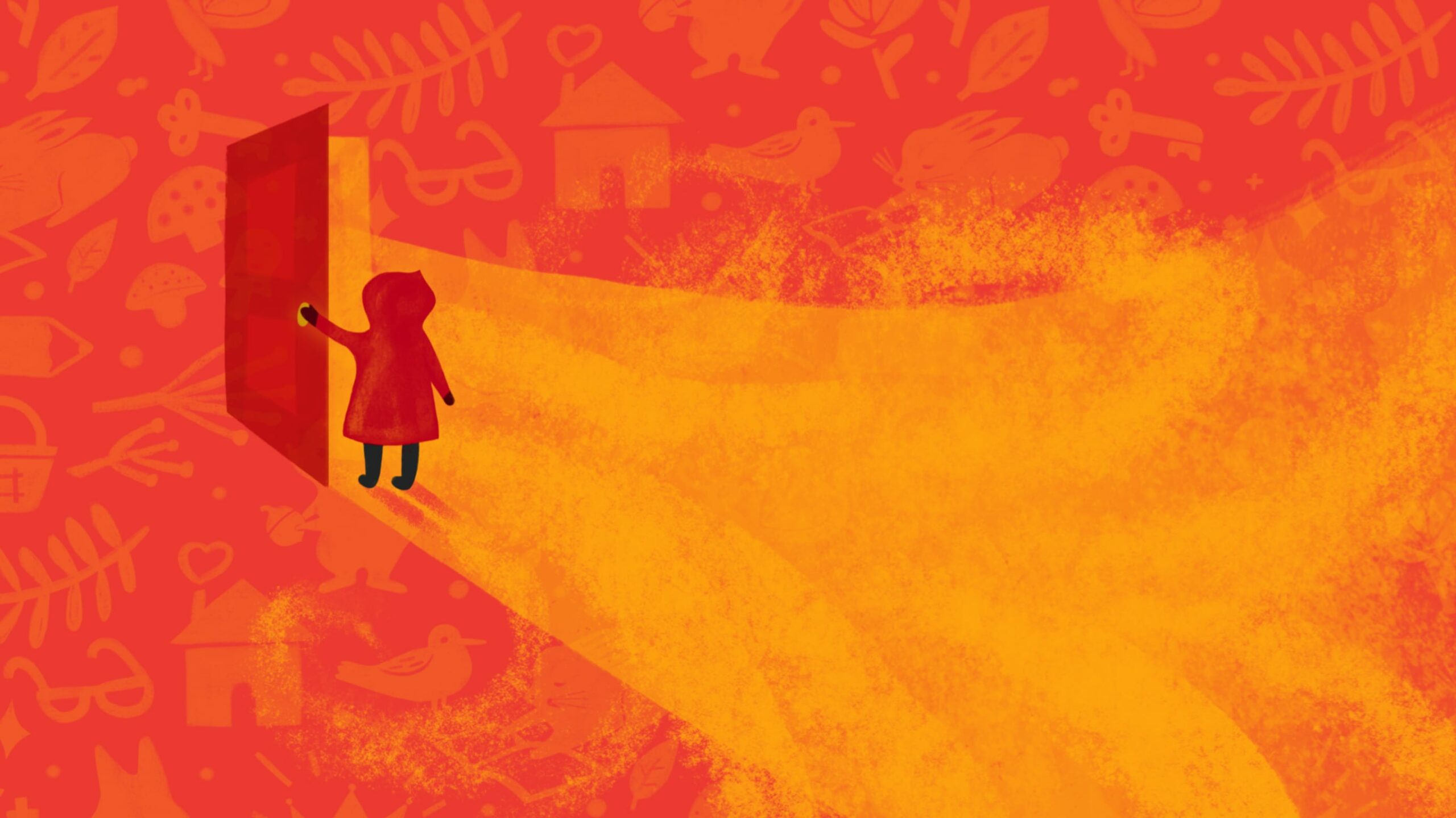
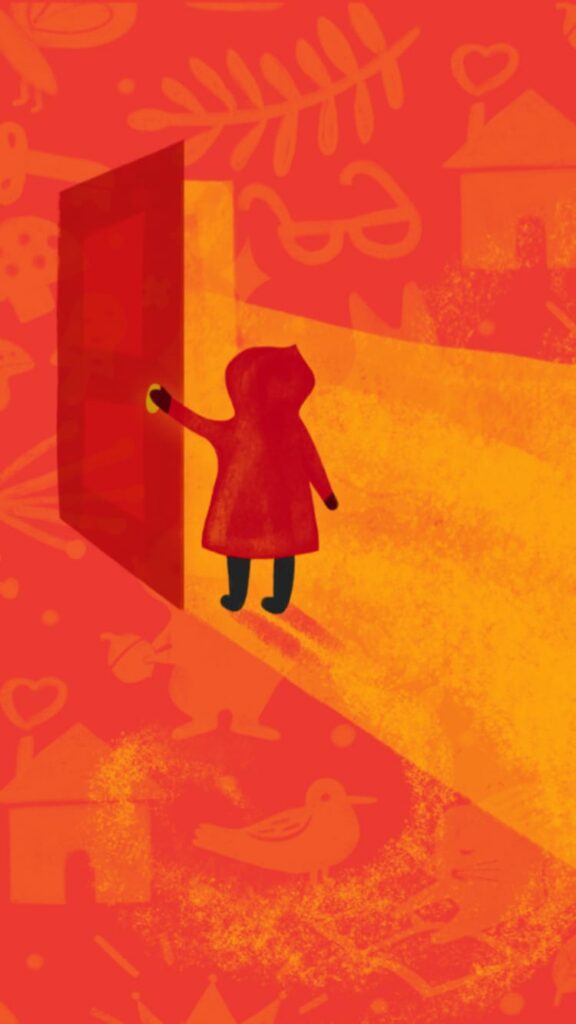
What is Little Red Reading House?
It’s a real house full of books, in the charming neighbourhood of Inglewood in Calgary, Alberta, that families can visit to explore the magic of reading.
Founded by Calgary Reads, the house is a part of the Owerko Centre at the University of Calgary, with support from the Alberta Children’s Hospital Foundation. Learn more about how we joined UCalgary.
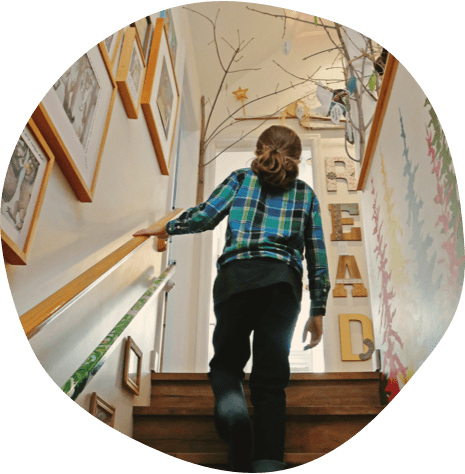


Book Bank
All of the books found in the Little Red Reading House come from our Book Bank which collects book donations from across the community all year long.


The Little Red Reading House makes reading fun and memorable
The Little Red Reading House embodies the magic of reading. The house is bright, colourful, and full of comfortable nooks perfect for curling up in. It’s a remarkable place to share a memorable experience.
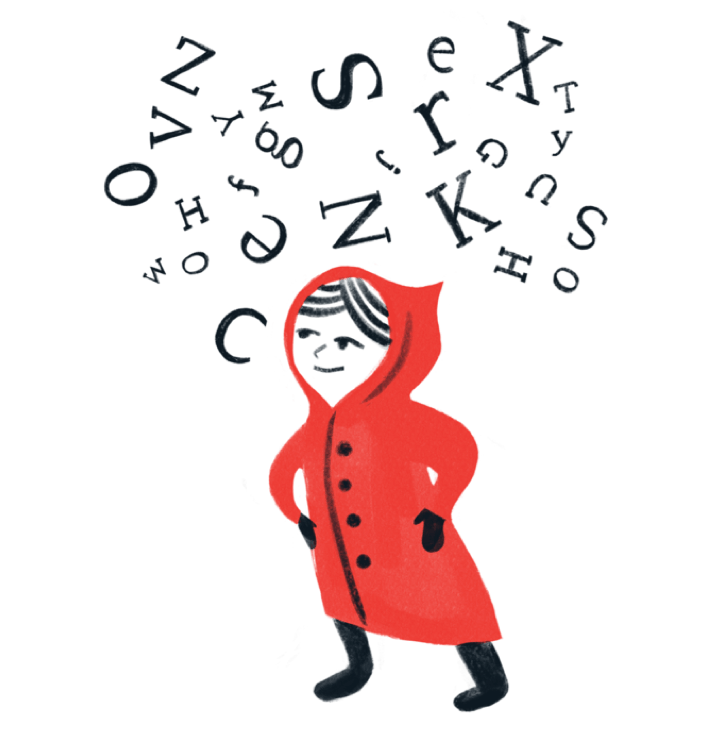

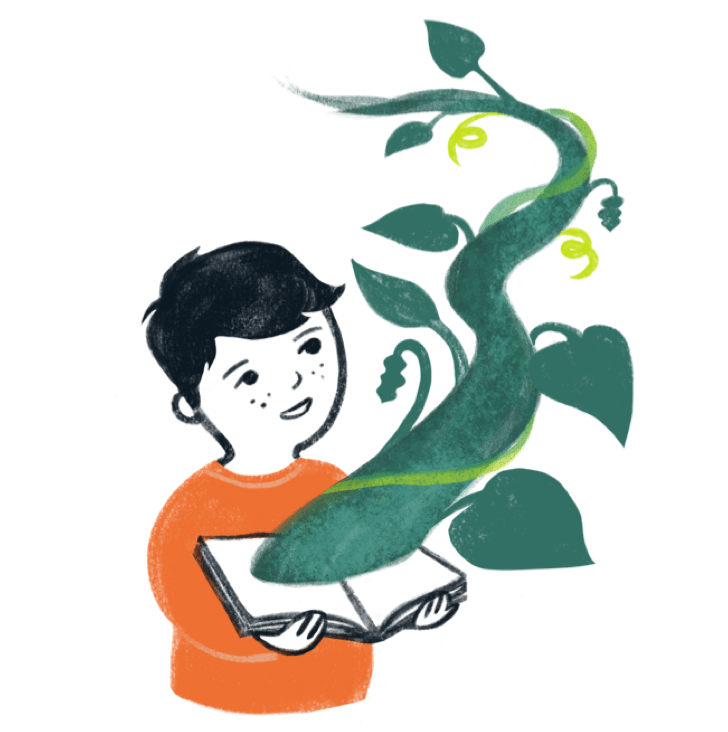

We put books in homes
Having books at home makes it easier for families to read together. Every time a child visits Little Red Reading House, we give them an age-appropriate book they can add to their home library. We also take our Little Red Reading Van into communities to promote literacy and give books. Through our Book Bank and partnerships with community agencies, we give books to children furthest from opportunity.
25%
of families report they don’t spend time reading at home and 6% say they don’t own books.1,2
27%
of children start school with literacy and developmental vulnerabilities.3
39%
of Canadian 16-year-olds have poor or weak literacy skills.4
Reading puts children on a path to success.
Early literacy has long-term benefits. Children who are read to early and often have better language skills, fewer developmental and behavioural challenges, and stronger academic outcomes. Literacy skills lead to better health, decreased poverty, greater community engagement, lower chances of incarceration, and healthier aging.
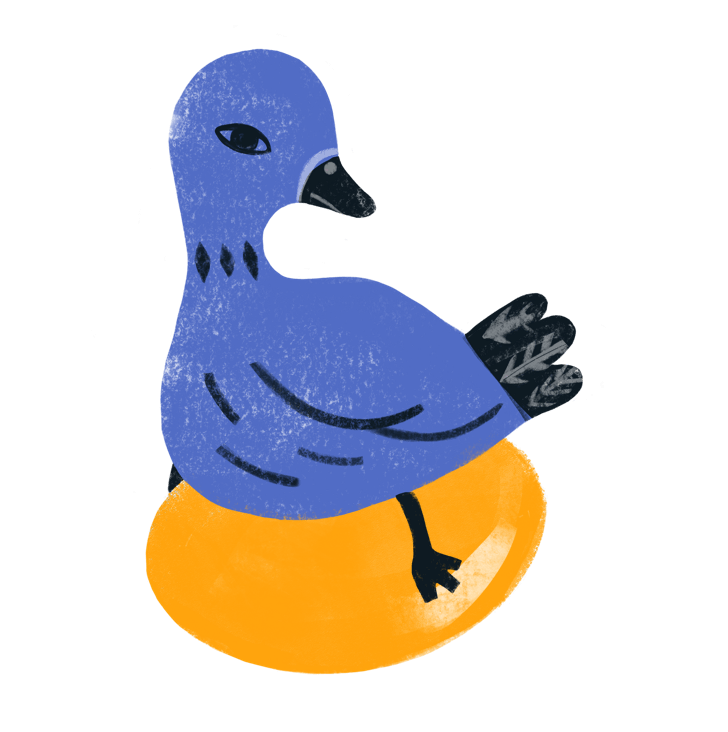

A 1% increase in literacy skills could lead to a 3% increase in Canada’s GDP – $54B per year, every year – and a 5% increase in productivity.5
1Logan et al. (2019). Journal of Developmental and Behavioral Pediatrics. 2Clark et al. (2021). National Literacy Trust (United Kingdom).
3Janus et al. (2018). International Journal of Population Data Science.
4OECD (2023), PISA 2022 Results (Volume I): The State of Learning and Equity in Education. (21% perform at Level 2, 18.1% perform below Level 2).
5 Schwerdt et al. (2020). Literacy and Growth: New Evidence from PIAAC.
As a teacher of early education, I was amazed at the care and thought that went into the design of Little Red Reading House. This is one of those "secret gems" in Calgary, I want everyone to know about it but also want it to be all mine too! What a wonderful place to celebrate reading, in such a loving environment that children feel instantly comfortable in! Can't wait to go back!
—Teacher
My daughter was so excited to get her first chapter book and have a "this book belongs to" sticker with her name.
—Calgary parent
All volunteers were so welcoming and helpful. One volunteer actually found a book with my granddaughter’s name in the title. Sophie and I enjoyed all the enjoyable little corners for reading and crafts. That house is like a hug!
—Regular family guests
Visit Little Red Reading House
